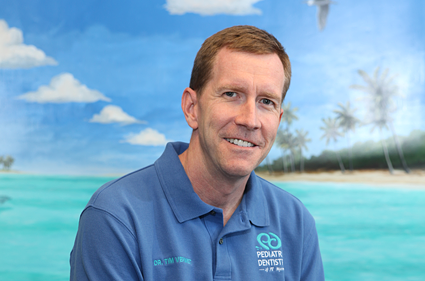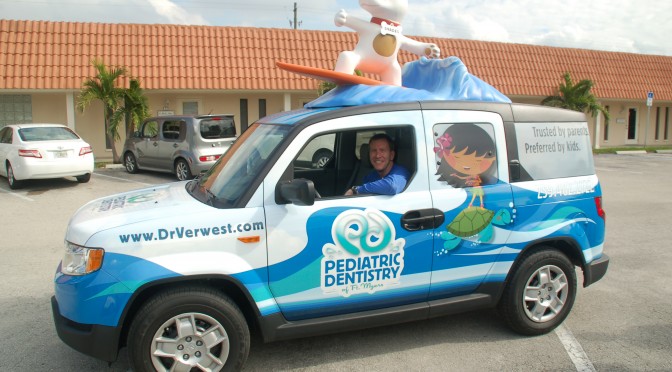What Dentist Appointments And Oil Changes Have In Common
Ever get your teeth cleaned and feel like you’re getting a tune-up on your pearly whites? If so, you’ve made the right correlation. Getting your[…]
Are You Brushing Too Much?
All you smile lovers out there strive to keep your teeth healthy and bacteria-free, am I right? But how much cleaning is too much cleaning?[…]
Facts About Fluoride
Did you wonder about any of the myths you’ve been hearing about fluoride? Well we have a few solid facts to set the record straight![…]

Dr. Verwest receives 2016 Spectrum Award
The City Beat News (CBN) awarded Pediatric Dentistry of Ft. Myers, Dr. Tim M. Verwest, DMD the 2016 Spectrum Award of Excellence in Customer Satisfaction.[…]

Local Dentist Recognized as America’s Best Dentist for 2016
The National Consumer Advisory Board has named Pediatric Dentistry of Ft. Myers, Dr. Tim M. Verwest, DMD one of America’s Best Dentist for 2016. Selections[…]
Caring for teeth with braces
Braces are often placed in patients between 10 and 14 years of age to correct crooked or overcrowded teeth. “The benefits of braces are many,”[…]
Baby pacifiers: Pros and cons
Should parents let their infant use a pacifier? According to the Academy of General Dentistry (AGD), there are benefits as well as a downside to[…]
5 tips to keep teeth healthy over the holidays
No matter how much you love your dentist, he or she probably doesn’t top the list of people you want to spend quality time with[…]

Dr. Tim M. Verwest, DMD voted 2015’s best dentist in Ft. Myers
Pediatric Dentistry of Ft. Myers, Dr. Tim M. Verwest, DMD has been voted 2015’s best dentist in Ft. Myers for dentistry treatment and services as[…]

Dr. Tim M. Verwest, DMD named 2015 top dentist
FORT MYERS, Fla. (February 23, 2015) – Pediatric Dentistry of Ft. Myers, Dr. Tim M. Verwest, DMD has been selected by the Consumer Research Council[…]
